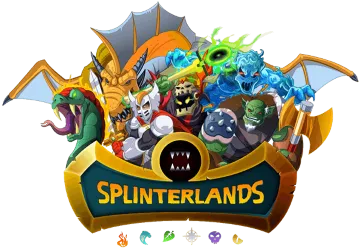Hello everyone! We are back again today with another edition of Splinterland Economics - a series in which we introduce a basic economic concept and then apply it to Splinterlands. If this is your first time reading, just to tell you a little bit about myself: my day job is in an unrelated area but I consider myself a little bit of economics nerd - I read a little (or maybe way, way) more news than I should, double majored in econ, and am obsessed with optimization. I love the way Splinterlands is equal parts card game and resource allocation game. My goal with these articles is to share a little bit of what I know with you all.
Our subject today may sound a little but like a shrub, but don't let that fool you - it's a powerful tool in finance, and one that you might be able to put to good use in your personal investments. In fact, you may already be using it without even knowing it - today, we will be talking about Hedging!

What is Hedging?
In investing, as well as life, there are many times where there is a lot of uncertainty - in the vast majority of cases, we don't know for sure how things will turn out and just need to make our decisions based on our best guesses. But what if you want to lower your risk of the unknown? That's where hedging comes into play! Hedging is the use of risk management in order to reduce your losses in case unfavorable events occur. As a brief aside - "hedge funds" are financial firms which may offer or use hedging as part of their services (and in some cases, do so extensively), but they are NOT quite the same thing.
As an example of hedging, let's consider the case of an airline. Airlines have many expenses, and one of the major ones is airplane fuel. The price of fuel is particularly volatile, and if an airline was to simply wait until they absolutely needed fuel and pay the current (or "spot") price, then they would be able to get their fuel, but would also not be able to determine ahead of time what their cost of operating would be. In an industry where seat tickets are often sold way in advance, that is a problem. So many airlines practice fuel hedging in order to stabilize the price that they pay for fuel - either by purchasing futures contracts, or using other derivatives in order to make their future price of fuel more predictable.
You may be thinking "this sounds excellent, there must be a catch!", and if you are then you would be correct. There is no such thing as free lunch, and there is a price to be paid for hedging. Individuals or firms who use hedging nearly always pay a price in order to do so - this is called a premium, and is often seen in the form of options prices or insurance premiums. And yes, while we're on the subject, health insurance, car insurance, and home insurance are all forms of hedging - you pay a certain price to an insurance company, who will then help to decrease your expenses if or when certain unfortunate events occur.
How do we apply it to Splinterlands?
Splinterlands is a game with many, many sources of uncertainty. You don't know which monsters your opponent will bring into battle. You don't know what other investors will choose to do with their capital. Heck, we don't even know what the developers will do next week, even though they do their best to give us a good educated guess. Many times when there is uncertainty, there are corresponding actions we may take in order to hedge against those risks. Do remember that hedging has a cost, and it is up to you to decide whether or not that cost is worth it.
Hedging is possible while playing your Splinterlands battles. In each match we are provided with the ruleset and our opponent's battle history, but don't have any way of knowing what type of lineup they will select. There is a risk here, because their monster lineup is unknown. It is possible to hedge here by selecting a team of monsters which is able to deal with a wide range of lineups. But there is certainly a cost here - a diverse team can potentially lose to a focused team which is playing to the strengths of its individual monsters or the battle ruleset.
When it comes to the behavior of fellow investors or the developers, the decisions have a slightly different impact - instead of deciding a win or loss on the battlefield, the actions of others within the Splinterlands ecosystem can have dramatic impacts on the prices or values of our assets. Going all-in on a particular asset and investing all of our capital on a single item or item type can pay off handsomely if you guess correctly and your object of choice skyrockets in value. But you could also incur heavy losses if you are wrong.
Alternatively, you can hedge by spreading your wealth across multiple types of investments in order to have a greater chance of having a net gain - at the cost of missing out on the potentially enormous profits you can make off of being correct on a narrower focus. You may also hedge against fluctuations in particular cryptocurrencies by converting your assets into a different one, such as a currency on a different blockchain, or a "stablecoin" which is pegged to some outside value - you can preserve your current assets, at the cost of potentially missing out on future gains.
Why should we care?
In a world where there are many unknowns, careful use of hedging can allow us to mitigate some of the risks. Depending on where you live there is a decent chance that you are already using some types of hedging such as auto or homeowners insurance because someone has decided that they are important enough to be mandatory. In addition to those mandatory hedges, there are countless other ways to hedge - at work, while playing games, or in our investments. Being aware of all of our options to deal with risk and understanding how they work help us to make better decisions about whether to accept that risk, or to pay some price to hedge against it.
Thank you so much for reading all the way to the end. Interested in seeing some more of my writing in the future? Be sure to give me a follow! In the meantime, if you'd like to see some of my recent posts:
A Shield with a Bite - Using Mycelic Infantry in Battle! - Last week's battle challenge, featuring Mycelic Infantry!
Splinterlands Economics: Capital - An overview of the concept of capital, and how we can apply it to Splinterlands!
Splinterlands Economics: Leverage - An introduction to the concept of leverage, and how we can apply it to Splinterlands!
Thinking about giving Splinterlands a try but haven't signed up yet? Feel free to use my referral link: https://splinterlands.com?ref=bteim, and be sure to reach out to me if you have any questions!
All images used in this article are open source and obtained from Pixabay or Unsplash. Thumbnails borrowed with permission from the Splinterlands team or made in Canva.



